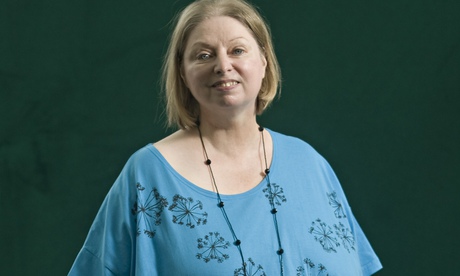“The most frequent question writers are asked is some variant on, ‘Do you write every day, or do you just wait for inspiration to strike?’ I want to snarl, ‘Of course I write every day, what do you think I am, some kind of hobbyist?’”
So wrote Hilary Mantel in a Guardian column describing her writing day. But it’s not enough these days to be a brilliant writer who toils away every day to produce a bestselling novel every few years. The non-hobbyist has to know how to fill in the gaps. And the best way to do so is to cultivate a controversialist streak (think of Ian McEwan’s contribution to the trans debate, or any number of provocations by Martin Amis).
It was just such a bit of gap-filling that took Mantel – now five years into the hiatus between Bring Up the Bodies and the third instalment of her Thomas Cromwell trilogy – to the Oxford literary festival, where she appeared to let slip the dogs of war against her fellow historical novelists.
In an interview with the historian Diarmaid MacCulloch – himself writing a biography of Cromwell, due out in September – she rounded on her “cringing” contemporaries in historical fiction who “try to burnish their credentials by affixing a bibliography”.
“You have the authority of the imagination, you have legitimacy. Take it. Do not spend your life in apologetic cringing because you think you are some inferior form of historian. The trades are different but complementary,” she said.
You only have to look at the titles she has appended to her work to realise that Mantel isn’t averse to a bit of mischief-making. But whether she was being playful or unguarded, one peril of the imperative to write every day may be that you miss out on developments in your genre. A startling feature of historical fiction over the few years since Mantel raised the standard with her second Man Booker win is how far its most exciting practitioners have travelled from the model she describes.
That much was evident from the 2017 shortlist of the Walter Scott prize, an award for historical fiction of which Mantel’s own Wolf Hall was the first winner back in 2010. It’s not a prize that gets much coverage in the national press, but this year’s shortlist made us all sit up and think.
The seven-strong list included Sebastian Barry’s Costa-winning Days Without End – about two young gay soldiers during the American civil war; Francis Spufford’s gloriously anachronistic homage to the 18th-century novel, Golden Hill; and Rose Tremain’s meditation on the cost of political and personal neutrality, The Gustav Sonata.
One contender, The Good People – a tale of early 19th-century Ireland by Australian Hannah Kent – does include a bibliography, which may in part reflect the anxiety of a young writer dealing with the primitive beliefs of a nation on the other side of the world. But much of it is devoted to the Irish flora, fauna and “leprechauna” that give her story its lush cultural underdressing.
But if there’s one novel on this list that signals a way forward for both historical fiction in particular and literary fiction in general, it’s Graham Swift’s Mothering Sunday, which seems to have escaped the notice of all the major prize juries, perhaps because it is so divested of the pomp and circumstance at which Mantel was gesturing (one could almost describe it as anti-bibilographic).
It’s a shiver of a novel – the exquisitely told story of a housemaid taking possession of her own way of seeing and being, at the birth of modernism. Though short, it is perfectly proportioned and no more a novella (therefore ineligible on grounds of length) than McEwan’s Booker-shortlisted On Chesil Beach. To give it a prize would be a heroic blow for historic, as opposed to historical, fiction, which one can only presume would delight Mantel. As she wrote on accepting the Walter Scott award: “In the years to come, this prize will magnetise attention and stimulate debate.” In the right sort of way, one hopes.











